At a traditional restaurant, the art of okonomiyaki cooking unfolds, inviting participants to craft their own savory pancakes on a sizzling griddle. With the guidance of an English-speaking instructor, guests mix a rich batter, incorporating fresh ingredients like crisp cabbage, succulent seafood, and tender meats. This interactive culinary experience not only showcases the dish’s versatility but also creates a vibrant atmosphere for social connection. As they flip and fry their creations, diners can’t help but wonder—what deeper cultural significance lies behind each bite of this beloved Japanese comfort food?
- Good To Know
- Overview of Okonomiyaki
- Cooking Experience Details
- Ingredients and Recipes
- Cultural Significance of Okonomiyaki
- Guided Tour Highlights
- Pricing and Booking Information
- Participant Guidelines
- Accessibility Features
- Frequently Asked Questions
- Can I Take Leftovers Home After the Cooking Experience?
- What Should I Wear for the Cooking Class?
- Are There Alternative Dishes for Dietary Restrictions?
- How Many People Can Participate in a Single Cooking Session?
- Is There a Minimum Age Requirement for Participants?
- The Sum Up
- More Dining Tours in Tokyo
- More Cooking Classes in Tokyo
- More Tour Reviews in Tokyo
- Looking for something different? Other Tokyo activities we've written about
Good To Know
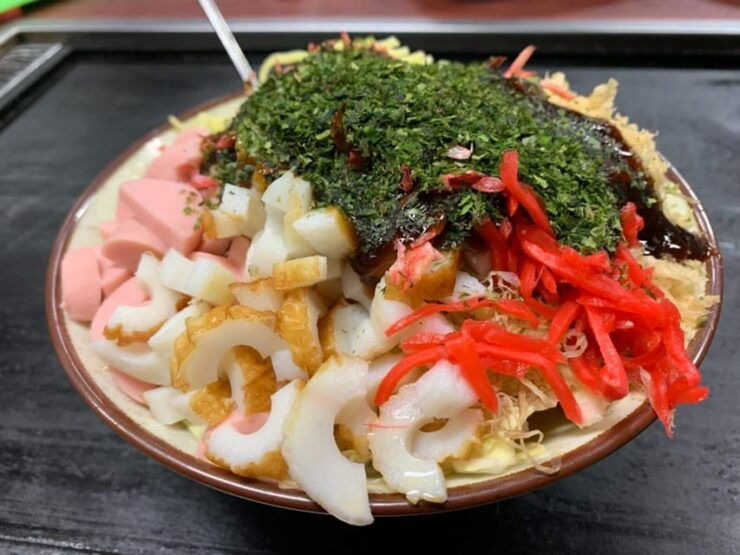
Experience hands-on cooking of Okonomiyaki, a traditional dish from the Kansai region of Japan, at a local restaurant.
Learn from an English-speaking instructor about the history and cultural significance of Okonomiyaki while cooking.
All necessary ingredients are provided, ensuring a seamless cooking experience in a fully wheelchair-accessible venue.
Enjoy customizing your Okonomiyaki with various toppings like seafood and meat, reflecting the dish’s versatile nature.
Participants receive a recipe to recreate the dish at home, encouraging continued exploration of Japanese culinary traditions.
Overview of Okonomiyaki
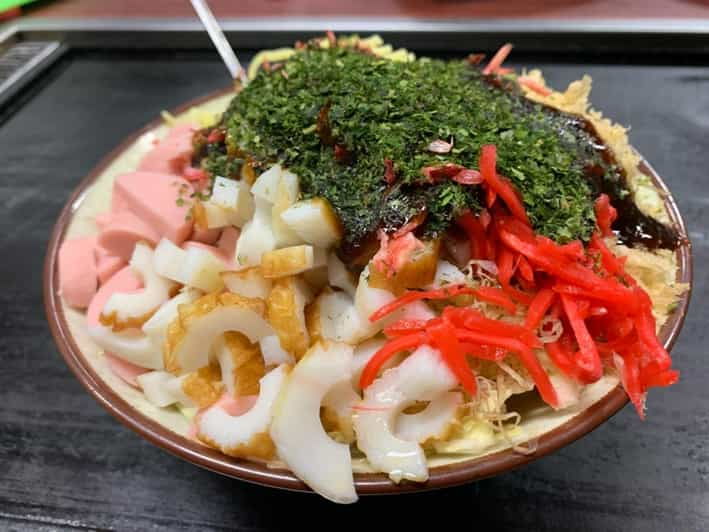
Okonomiyaki, often referred to as "Japanese savory pancakes," is a delightful dish that brings together a medley of flavors and textures, making it a favorite among locals and travelers alike.
Originating from the Kansai region, this dish features a base of flour, grated yam, and shredded cabbage, all mixed with various ingredients like seafood, meat, and cheese.
Each pancake is cooked on a griddle, allowing diners to customize their toppings and sauces, including tangy okonomiyaki sauce and creamy mayonnaise.
The name "okonomiyaki" translates to "grilled as you like it," reflecting its adaptable nature.
With its vibrant presentation and rich flavors, okonomiyaki not only satisfies hunger but also showcases the essence of Japanese culinary creativity and culture.
Want to learn local cooking? Other Tokyo cooking classes we've covered
Cooking Experience Details
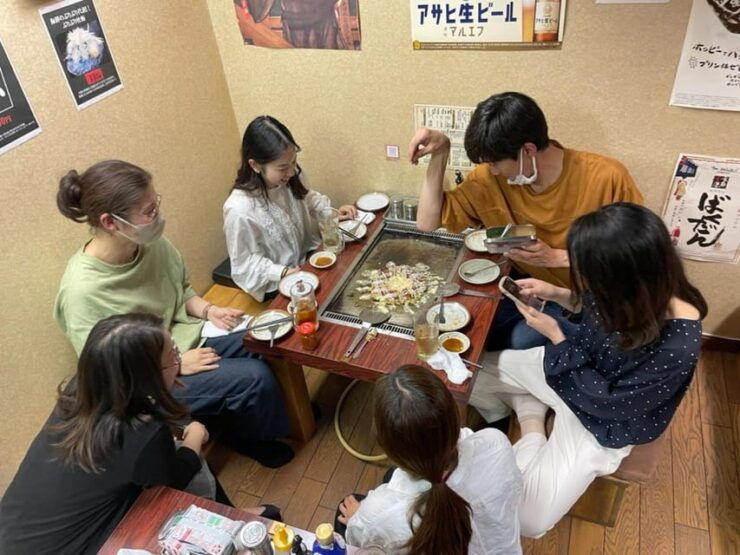
For anyone looking to dive into the world of Japanese cuisine, the cooking experience offers a hands-on opportunity to create delicious okonomiyaki and monjayaki. Participants enjoy a guided session lasting 1.5 to 2 hours, where they learn essential cooking techniques. An English-speaking guide provides insights into Japanese food culture, making the experience both educational and engaging.
| Feature | Details |
|---|---|
| Duration | 1.5 to 2 hours |
| Language | English-speaking guide |
| Accessibility | Wheelchair accessible |
All ingredients are provided, and each participant receives a recipe to recreate the dishes at home. This unique experience is perfect for anyone eager to explore Japanese culinary traditions.
Ingredients and Recipes
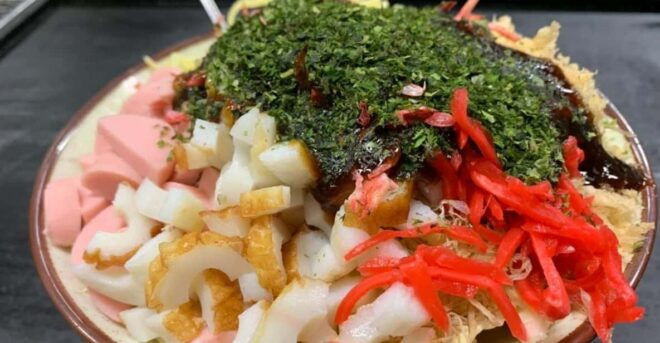
During the cooking experience, participants dive into a vibrant array of fresh ingredients that form the foundation of okonomiyaki and monjayaki.
They start with a base of finely chopped cabbage, which adds crunch and flavor. Next, they mix in a batter of flour, dashi, and eggs, creating a rich and savory foundation.
Toppings like sliced pork, shrimp, and green onions come next, allowing each cook to personalize their dish. For monjayaki, the ingredients are more fluid, often including cheese and other fillings, resulting in a delightful, gooey texture.
At the end of the session, participants receive a recipe to replicate their delicious creations at home, ensuring the joy of making these traditional dishes continues beyond the restaurant.
Cultural Significance of Okonomiyaki
The vibrant flavors and diverse ingredients of okonomiyaki not only create a delightful culinary experience but also reflect the rich cultural tapestry of Japan.
This dish embodies the spirit of togetherness and community, often enjoyed in casual settings where family and friends gather. Its significance extends beyond mere sustenance, showcasing Japan’s regional variations and local ingredients.
Culinary Heritage: Okonomiyaki represents a fusion of local tastes, blending ingredients unique to specific regions.
Social Bonding: Cooking and sharing okonomiyaki fosters connections, making it a staple at gatherings and celebrations.
Cultural Identity: Each bite tells a story, reflecting Japan’s history, traditions, and the evolution of its food culture.
Through okonomiyaki, diners experience a slice of Japan’s rich heritage.
More Great Tours NearbyGuided Tour Highlights
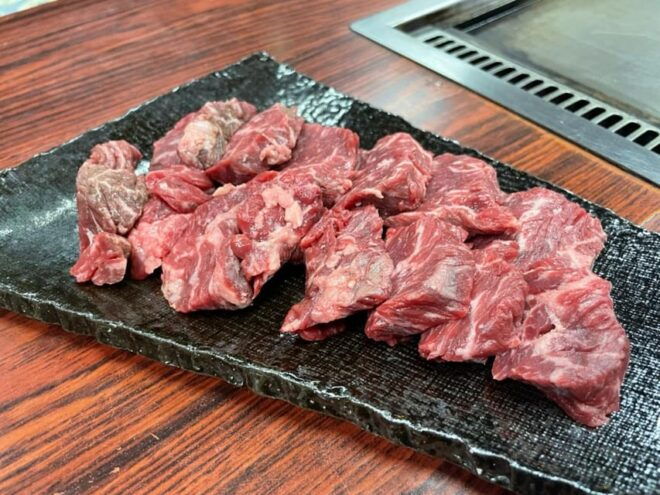
With a focus on experiential learning, the guided tour of the okonomiyaki cooking experience immerses participants in the vibrant world of Japanese culinary traditions.
As they gather around traditional griddles, an English-speaking guide shares insights into the rich history and cultural significance of okonomiyaki and monjayaki. Participants can actively engage by asking questions throughout the cooking process, enhancing their understanding of the techniques involved.
The tour also includes the opportunity to capture memorable moments, with photos taken by the guide. Each participant receives all the necessary ingredients and a recipe to recreate their culinary creation at home.
This immersive journey not only enriches culinary skills but also fosters a deeper appreciation for Japan’s diverse food culture.
More tours and activities we've covered in Tokyo
- Tokyo Skytree: Dining & Walking Tour to the Sensoji
- All-You-Can-Drink Takoyaki Dinner Party With Local People
- Traditional Dinner Cruise&Japanese Show Tokyo Tower Ticket
- Wagyu & Sake Tasting Dinner in Shinjuku
- Tokyo Bay: Private Yakatabune Cruise (with Lunch/Dinner)
- Fuji Spiritual Private Tour With Lunch and Dinner
Pricing and Booking Information
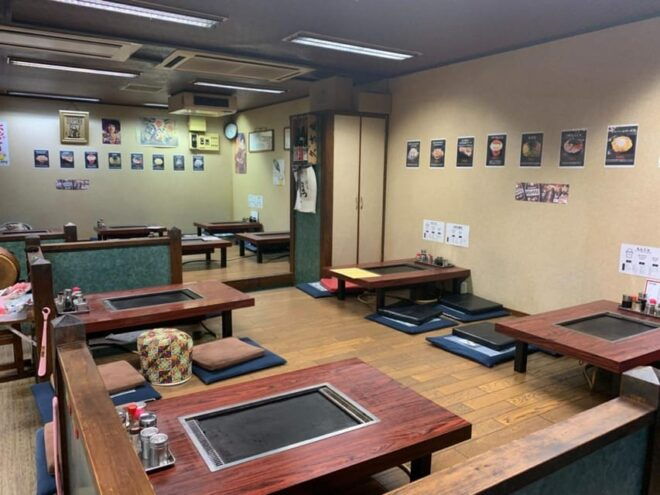
How can one secure a spot for the delightful okonomiyaki cooking experience? Booking is simple and offers flexibility, making it easy for anyone to join in on the culinary fun.
Here’s what to keep in mind:
Pricing: The experience starts at just Kč2,173 per person, providing great value for a unique cultural outing.
Reserve Now, Pay Later: Participants can reserve their spot without immediate payment, allowing for peace of mind.
Check Availability: It’s essential to confirm available starting times to ensure a spot on a preferred date.
With free cancellation up to 24 hours in advance, guests can feel secure in their plans while looking forward to an unforgettable cooking adventure in a traditional setting.
Participant Guidelines
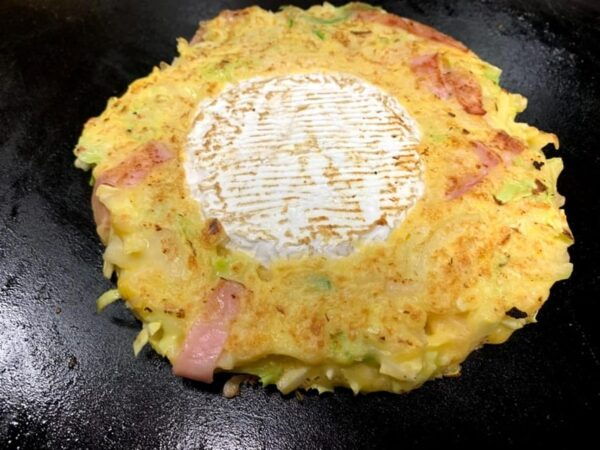
When planning to join the okonomiyaki cooking experience, participants should be aware of a few important guidelines to ensure a smooth and enjoyable time. First, it’s essential to note that the activity isn’t suitable for children under 2 years, and pets aren’t allowed. Plus, participants must arrive on time to fully enjoy the experience.
Here’s a quick overview of participant guidelines:
| Guideline | Details |
|---|---|
| Age Restrictions | Not suitable for children under 2 |
| Pets | Not allowed |
| Punctuality | Arrive on time |
| Cancellation Policy | Free cancellation up to 24 hours |
| Cooking Experience | All ingredients included |
Accessibility Features
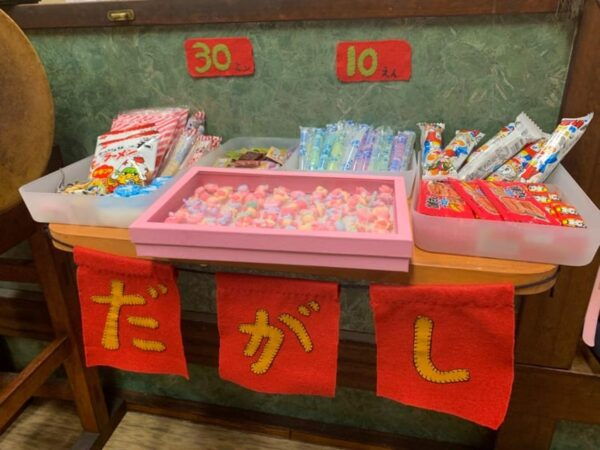
The okonomiyaki cooking experience is designed to be inclusive and welcoming for all participants.
This thoughtful approach ensures that everyone can enjoy the culinary adventure, fostering a sense of community and connection.
Key accessibility features include:
Wheelchair Accessibility: The venue is fully accessible, allowing guests with mobility challenges to participate comfortably.
Language Support: An English-speaking guide facilitates understanding, making the experience enjoyable for non-Japanese speakers.
Flexible Cancellation Policy: The free cancellation option up to 24 hours in advance provides peace of mind, accommodating any unexpected changes.
Frequently Asked Questions
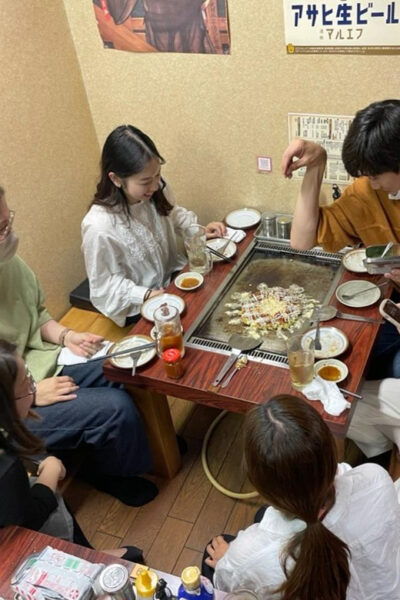
Can I Take Leftovers Home After the Cooking Experience?
She wondered if she could take leftovers home after the cooking experience. Unfortunately, the restaurant typically doesn’t allow that, encouraging participants to savor their creations on-site and enjoy the vibrant atmosphere.
What Should I Wear for the Cooking Class?
For the cooking class, participants should wear comfortable clothing, preferably something that can get a little messy. Closed-toe shoes are ideal, as they’ll provide safety while moving around the kitchen and working with hot equipment.
Are There Alternative Dishes for Dietary Restrictions?
When it comes to dietary restrictions, the experience offers alternatives. Participants can inform the guide about their needs, ensuring everyone enjoys delicious, tailored dishes without compromising their dietary preferences or requirements during the cooking session.
How Many People Can Participate in a Single Cooking Session?
The cooking session accommodates up to eight participants, ensuring an intimate experience. This allows everyone to engage with the process, ask questions, and enjoy the vibrant atmosphere while learning traditional culinary techniques together.
Is There a Minimum Age Requirement for Participants?
The experience has a minimum age requirement of two years. Participants younger than this can’t join, ensuring a comfortable environment for everyone. The focus remains on providing an enjoyable and engaging cooking experience for all.
The Sum Up
To sum it up, the okonomiyaki cooking experience at a traditional restaurant offers an unforgettable journey into Japanese cuisine. Participants not only savor the delicious flavors of their creations but also forge connections with fellow foodies. With expert guidance, fresh ingredients, and a vibrant atmosphere, this hands-on activity is a perfect blend of education and fun. Whether you’re a seasoned chef or a curious beginner, it’s a delightful way to take in Japan’s rich culinary culture.
You can check availability for your dates here: More Great Tours NearbyMore Dining Tours in Tokyo
- Tokyo: Private Tour and Traditional Performance with Dinner
- Luxurious&Exclusive Local Dining and BAR Experience in Shinjuku
- Tokyo NIGHT CLUB TOUR with a VIP Table & Drinks with Dinner
- Shinjuku/Okubo Night: Japanese Dinner Sake Tasting & Karaoke
- Wagyu & Sake 8 Course Tasting Dinner in Shinjuku
- Tokyo: Samurai Restaurant Show with Sukiyaki Bento Box
More Cooking Classes in Tokyo
- Real Flower Cake Cooking Experience in Nerima,Tokyo
- Tokyo: Sushi and Ramen Cooking Class with Sake Pairing Set
- Tokyo: Tsukiji Market Walking Tour & Sushi Cooking Class
- Tokyo: Easy Ramen Cooking Experience in Kabukicho, Shinjuku
- Private Gluten-Free Japanese Cooking Class in Tokyo Japan
- Tokyo: Small Family Cooking market Experience by local host
More Tour Reviews in Tokyo
- Spectral Drive Private Tour: Tokyo’s Haunted Secrets
- Mt Fuji and Hakone Day Trip from Tokyo with Ropeway Experience
- Yanaka and Nezu Walking Tour Discover the Edo Spirit
- Tokyo Local Eats: Hidden Street Food Tour in Ueno & Ameyoko
- Tokyo: 3-Hour Bike/E-Bike Tour of the City’s Hidden Gems
- Tokyo: Hama-rikyu Garden Guided Tour with Entry Ticket
Looking for something different? Other Tokyo activities we've written about
- Tokyo: 3-Hour Bike/E-Bike Tour of the City’s Hidden Gems
- Tokyo: Hama-rikyu Garden Guided Tour with Entry Ticket
- Mt. Fuji Hakone and Kamakura Day Tour: Cruise/Ropeway/island
- Tokyo: Mochi-Making Experience with Tasting
- Tokyo: Nikko Day Tour with Private Vehicle and Guide
- Experience New AR Sports: Next-Level Gaming Tokyo
- Tokyo: Ramen Tasting Tour in Tokyo Station
- Samurai Sword Experience in Tokyo with Kimono
- Tokyo: Mt Fuji & Oshino Hakkai & Lake Kawaguchi & Oishi Park
- Tokyo: Gotokuji Temple Guided Tour with Manekineko Statues
- Tokyo: Imperial Palace and Shogun Walking Tour
- Tokyo Private Tour by Car with English-Speaking Driver (Premium)
